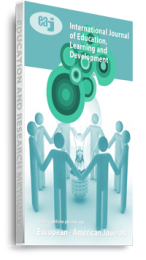Democracy has been an acceptable platform of interaction in the committee of nations. It is also the most widely acceptable system of governance. Essentially, the birth of democracy in Nigeria has endured for over a decade, but the democratization process in Nigeria suffers from several security issues, given that the citizens have been exposed to high levels of insurgency, poverty and unemployment. Social and economic insecurity has being a major setback to democratic governance in Nigeria and this has impaired the participation of the citizens in democratic governance, thereby leaving governance for a privilege few. This paper examines the linkage between social and economic insecurity and the participation of Nigeria citizens in democratic governance. The researchers adopted a public opinion questionnaire based on experts’ judgment; and using the Cronbach alpha formulae; internal consistency reliability coefficient of 0.87 was obtained. The data collected was analyzed using the one sample t-test, with hypotheses tested at 0.05 level of significance. Findings indicate that social and economic insecurity negatively impact on democratic participation; given that the fear of violent attack, poverty, absence of the dividend and unequal distribution wealth reduce democratic participation. Recommendations are made that politicians should be obliged by law to fulfill the promises made during campaigns or before elected into offices. Government should create an enabling environment to address issues of poverty, unemployment, corruption among governing class and insurgency, so that security for life and property will be assured.
Keywords: Insecurity, Poverty, Security, Socio-Economic, democratic participation

